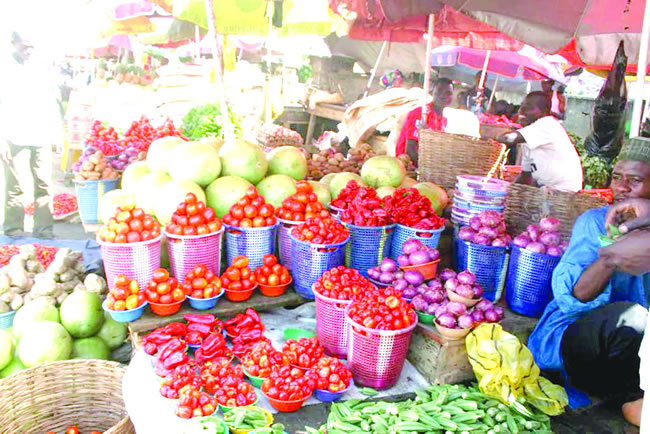A Professor of health promotion and education, Oyediran Oyewole, has said that accountability, probity, and transparency are values that are essential ingredients to positively influence rights to adequate food and nutrition in Nigeria.
He said a right-based approach to food and nutrition security does not impose unreasonable obligations nor expect unachievable goals to be reached since the right to food is not the right to be fed.
Oyewole, spoke at a day seminar on the theme “Right to Foods for a Better Life and a Better Future: Leave No One Behind” that was organised by the Institute for Dietetics in Nigeria’s (IDN) Oyo state chapter to commemorate the 2024 World Food Day.
Professor Oyewole said although the right to food is enshrined in international human rights law such as the Universal Declaration on the Eradication of Hunger and Malnutrition and Nigeria is a signatory to these declarations, issues of the right to adequate food and nutrition are far from being ideal in Nigeria.
He said that the right to adequate nutrition is realised when every man, woman, and child, alone or in a community with others, has the physical and economic access at all times to adequate food or means for its procurement.
The don, who noted that the issue of human rights to food and nutrition has not received much attention for it to create a meaningful impart in most sub-Saharan African countries, said there is a paucity of data in Nigeria on the right to adequate food and nutrition, and the Nigerian Constitution is very passive on these right issues.
“The poor nutritional statistics on nutrition indicators that are stunting, wasting, and underweight among the under-5s in developing countries suggest that issues of the right to adequate food and nutrition are far from being ideal in Nigeria,” he added.
Read Also: Risk of Monkey pox five times higher in people unvaccinated against smallpox — Expert
According to him, under the UN human food right, the target groups that food should be accessible to include children, sick people, people with disabilities, the elderly, prisoners, and people in remote areas.
Although levels of implementation of the right to adequate nutrition include at the household and individual levels, he said its enforcement requires the review of the Nigerian constitution to include the right to adequate food and nutrition, legislation and enforcement of punitive actions against corruption, and a re-appraisal of the educational system to promote human skills development.
“The right to food is not the right to be fed. The State does not have an obligation to provide free food to its population. The core of this right is non-discrimination; everyone has the right to feed themselves in dignity.
“Accordingly, the state’s primary action should be addressing discrimination in food-related matters and preventing hunger through all national policies.
“A right-based approach to food and nutrition security does not impose unreasonable obligations nor expect unachievable goals to be reached.
“All that the language of rights does is set human rights standards that should be met by those in government because they have the power and resources to improve people’s lives.
“The right to food guidelines anticipated the urgency to address today’s most pressing global challenges: corruption, conflicts, migrations, and climate change-connected issues such as drought, water scarcity, natural disasters, and hazards. All these cannot be solved unless leaving no one behind ceases to be just a motto.
“Most importantly, leaving no one behind requires the efforts of a multitude of actors, cooperating, dialoguing, and ready to make our world a better place.”
Earlier, Chairman of the Institute for Dietetics in Nigeria (IDN) Oyo state chapter, Mr Tunde Ajobo, declared that the celebration was to call attention to the right to food as a fundamental human right.
Ajobo quoted the Food and Agriculture Organisation projection that 26.5 million Nigerians will face severe hunger by the second quarter of 2024, saying the alarming figure highlights the ongoing challenges the nation faces in food production, economic instability, conflict, and climate-related issues.
According to him, Nigeria’s focus must go beyond the availability of food but to bridge the gap between food availability and nutrition adequacy to ensure that every meal translates into health, wellbeing, and a future where no man is left behind.
“The right to food is not merely the right to have food on our tables. It is the right to access sufficient, safe, and nutritious food that supports an active and healthy life. Food is not just a commodity; it is a lifeline that upholds human dignity and rights,” he added.
